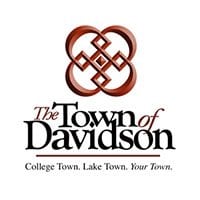TOWN INFORMATION
Property Owners Invited to Learn about Local Historic District Expansion

The Town of Davidson invites all community members to a meeting with Historic Preservation Consultant Mary Ruffin Hanbury on Wednesday, November 28 at 6:00 p.m. at the Davidson United Methodist Church fellowship hall, located at 233 S. Main Street, to learn about the historic district designation process. She will explain the benefits of designation, discuss the process, and answer questions.
The Town of Davidson is exploring the expansion of its local historic district, which currently includes the two to three blocks that comprise downtown. The goal is to preserve and protect historically significant structures in Davidson. Historic preservation helps retain our sense of place, our small-town character, and links to our community’s past. Designating areas of town as a local historic district is beneficial to both the community and the property owner.
The current local historic district was designated in 1989. In 2009, a much larger area of “old Davidson” was designated as a National Register Historic District.
“We encourage property owners, especially those in the National Register Historic District, to attend this meeting, since neighborhoods in that district have the most intact historic integrity and will be the most likely candidates for an expanded local historic district,” said Assistant Town Manager Dawn Blobaum. “Historic preservation is one of the Davidson Board of Commissioners’ goals in their 2018-2019 Strategic Plan, so we are interested in exploring the benefits of expanding our local historic district.”
The town hired an historic district expert, Mary Ruffin Hanbury of Hanbury Preservation Consulting, to determine which neighborhoods are appropriate for local historic district designation.
Background
A local historic district is a zoning overlay that is an amendment to the planning ordinance and must be approved by the Davidson Board of Commissioners. Prior to a vote by commissioners, a public hearing is required. The historic preservation commission and the planning board also review the overlay district and relay their comments to the board of commissioners. We are adding Mary Ruffin Hanbury’s educational session this fall, and will include an additional opportunity for citizen input in the spring, after she has completed her documentation and has a recommendation for expansion of the district.
Local historic districts protect the investments of owners and residents of historic properties. Insensitive or poorly planned development can make an area less attractive to investors and homebuyers, and thus undermine property values. In contrast, in a local historic district, historic district design guidelines and review by the historic preservation commission of major, substantial changes to a property encourages people to buy and rehabilitate properties because they know their investment is protected over time. The historic preservation commission also has the authority to delay demolition of a structure for up to one year, giving the town, the Charlotte-Mecklenburg Landmarks Commission, or another entity the ability to purchase and protect the property.
Properties within local historic districts appreciate at rates greater than the local market overall as well as faster than similar, non-designated neighborhoods. Findings on this point are consistent across the country. Moreover, recent analysis shows that historic districts are also less vulnerable to market volatility from interest rate fluctuations and economic downturns.
Please contact Assistant Town Manager Dawn Blobaum at 704-940-9615 with any questions.
For a map of our National Register Historic District and Frequently Asked Questions, please visit the website.


